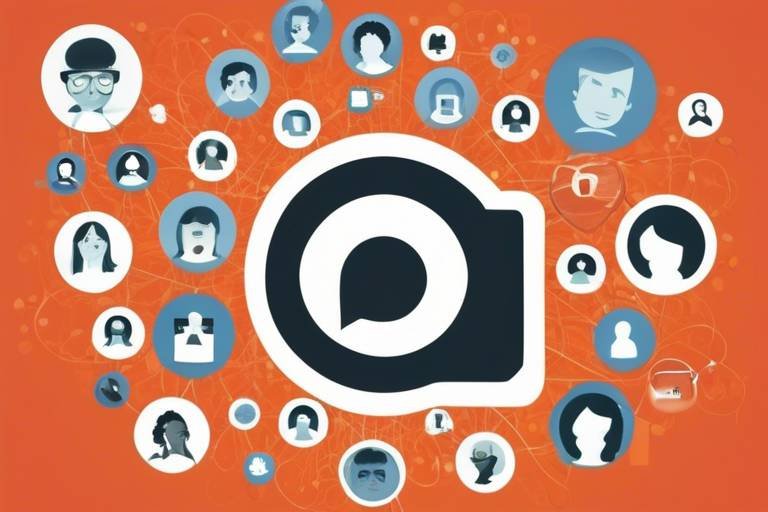Cyber Stalking - How to Protect Yourself
In today's digital landscape, where our lives are increasingly intertwined with technology, the threat of cyber stalking looms large. This article delves into the unsettling reality of cyber stalking, a phenomenon that can leave victims feeling vulnerable and powerless. By understanding the nature of this issue, recognizing its signs, and implementing practical strategies for protection, we can equip ourselves to navigate the online world more safely. Whether you're a social media enthusiast, an online shopper, or just someone who uses the internet to connect with friends and family, knowing how to protect yourself from cyber stalking is essential.
Cyber stalking is not just a buzzword; it represents a serious form of harassment that utilizes digital technology to intimidate, control, or harm another individual. Imagine someone lurking in the shadows of your online life, constantly monitoring your activities, sending threatening messages, or even impersonating you. This invasion of privacy can happen through various channels, including social media, email, and messaging apps. In fact, studies reveal that a significant percentage of internet users have experienced some form of online harassment, making it crucial to grasp the full scope of cyber stalking in our interconnected world.
Recognizing the signs of cyber stalking is the first step toward regaining control over your online presence. Victims may notice a series of unsettling behaviors that could indicate they are being targeted. These can include:
- Receiving unwanted messages or comments.
- Being followed or monitored on social media platforms.
- Experiencing threats or intimidation online.
- Noticing strange or suspicious activity on personal accounts.
These indicators can escalate quickly, making it vital to take them seriously and seek help if you find yourself in such a situation.
Cyber stalking can manifest in various forms, each with its own unique challenges. Understanding these types can help you identify potential threats more easily. Here are some common categories:
Social media platforms, while great for connection, can also become breeding grounds for stalkers. They exploit the openness of these platforms to harass individuals through direct messages, comments, or even creating false profiles. The impact on victims can be profound, leading to anxiety and fear that spills into their everyday lives.
Impersonation is another alarming form of cyber stalking. This occurs when someone creates a fake profile using your name and photos, often to deceive others or damage your reputation. The psychological effects can be devastating, leaving victims feeling violated and helpless.
The emotional toll of cyber stalking cannot be overstated. Victims often experience feelings of isolation, anxiety, and depression. The constant fear of being watched or targeted can lead to a significant decline in mental health. It's crucial for those affected to understand that they are not alone and that seeking help is a vital step toward healing.
Understanding the legal framework surrounding cyber stalking is essential for victims seeking justice. Many jurisdictions have laws specifically addressing online harassment, providing a means for victims to seek protection. Resources such as local law enforcement, legal aid services, and victim support organizations can offer guidance and assistance.
If you find yourself a victim of cyber stalking, knowing how to report it effectively is crucial. Here are steps to consider:
- Document all incidents, including dates, times, and screenshots of messages.
- Report the behavior to the platform where it occurred.
- Contact local authorities if the harassment escalates.
Consulting legal professionals can provide invaluable support in navigating the complexities of cyber stalking cases. They can help victims understand their rights, explore legal options, and take necessary actions to protect themselves.
Taking proactive steps can significantly reduce the risk of becoming a victim of cyber stalking. Here are some practical tips to safeguard your personal information:
Adjusting your privacy settings on social media and other platforms is crucial for enhancing your online security. Ensure that only trusted individuals can view your personal information and posts. Regularly update your passwords and enable two-factor authentication where possible.
Knowledge is a powerful tool in the fight against cyber stalking. Educating yourself about the risks and preventive measures can empower you and those around you. Share information about online safety with friends and family to create a supportive network that can help combat cyber harassment.
1. What should I do if I believe I'm being stalked online?
Document everything, report the behavior to the relevant platform, and consider contacting local authorities for assistance.
2. Can cyber stalking lead to physical harassment?
Yes, in some cases, cyber stalking can escalate to physical harassment. It's important to take all threats seriously.
3. Are there legal protections against cyber stalking?
Many jurisdictions have laws addressing cyber stalking, and victims can seek protection through legal channels.
4. How can I protect my personal information online?
Adjust your privacy settings, use strong passwords, and be cautious about the information you share on social media.

Understanding Cyber Stalking
This article explores the phenomenon of cyber stalking, its effects on victims, and practical strategies for protection and prevention in the digital age.
Cyber stalking is a form of harassment that takes place in the digital realm, where individuals use the internet and technology to intimidate, control, or threaten another person. In today's world, where our lives are increasingly intertwined with technology, the prevalence of cyber stalking has escalated alarmingly. Imagine walking down a street and feeling like someone is following you, but instead of physical presence, it’s a series of messages, social media posts, or emails that create an atmosphere of fear and anxiety. This is the essence of cyber stalking.
The definition of cyber stalking can vary, but it generally encompasses behaviors such as:
- Repeatedly sending threatening or unwanted messages
- Monitoring a person's online activities without their consent
- Using social media to harass or intimidate
- Creating fake profiles to impersonate or deceive
In the vast landscape of the internet, where anonymity can be easily achieved, stalkers often exploit this to their advantage. They can hide behind screens and create an illusion of safety while inflicting emotional and psychological harm on their victims. According to recent statistics, nearly 40% of individuals have experienced some form of online harassment, with a significant portion of these cases qualifying as cyber stalking. This growing trend emphasizes the need for awareness and understanding of the issue.
One of the most troubling aspects of cyber stalking is its ability to cross over into other areas of a victim’s life. It’s not just about online harassment; it can spill into real-world interactions, making it even more frightening. Victims often find themselves in a constant state of vigilance, fearing that their stalker may escalate their behavior. The emotional toll can be overwhelming and can lead to feelings of helplessness, anxiety, and even depression.
As we navigate through the complexities of the digital age, it becomes crucial to recognize the signs of cyber stalking and understand its implications. Victims may feel isolated, and the stigma surrounding online harassment can make it difficult for them to seek help. This understanding is the first step toward creating a safer online environment for everyone. By educating ourselves about the nature of cyber stalking, we can better equip ourselves and others to recognize and combat this pervasive issue.

Recognizing the Signs
In today's digital age, where our lives are increasingly intertwined with technology, recognizing the signs of cyber stalking is more crucial than ever. Cyber stalking can creep into our lives subtly, often hiding behind the guise of casual online interactions. But how do you know if you or someone you care about is being targeted? There are several indicators that can signal the presence of a cyber stalker. Being aware of these signs is the first step towards taking action and regaining control.
One of the primary signs of cyber stalking is unwanted communication. This can manifest as persistent messages, comments, or emails that are harassing or threatening. If someone is bombarding you with messages, especially after you've asked them to stop, it’s a red flag. It’s important to note that this behavior can occur across various platforms, from social media to email, and even in gaming communities. The key here is the lack of respect for your boundaries.
Another sign to watch for is monitoring your online activity. If you notice someone is overly aware of your movements online—like knowing when you post, what you post, or who you interact with—it may indicate that they are tracking you without your consent. This can be done through various means, such as creating fake accounts to follow you or using software to monitor your online behavior. Such actions can create a feeling of being constantly watched, leading to anxiety and fear.
Victims of cyber stalking often experience manipulative behavior from the stalker, which can include attempts to control or influence their online presence. For instance, a stalker may spread false information about the victim, attempt to turn friends against them, or even impersonate them online. This type of behavior can be incredibly damaging and can lead to significant emotional distress.
Furthermore, if you find that someone is threatening to share personal information or has already done so, this is a serious sign of cyber stalking. Stalkers may use sensitive information as a weapon, threatening to expose it unless the victim complies with their demands. This not only violates the victim's privacy but can also lead to severe emotional and psychological repercussions.
In summary, recognizing the signs of cyber stalking involves being vigilant about changes in communication patterns, monitoring behaviors, manipulative tactics, and threats regarding personal information. If you or someone you know is experiencing these signs, it's essential to take them seriously. Document everything, seek help, and remember that you are not alone in this fight.
- What should I do if I suspect I am being cyber stalked? If you suspect you are being cyber stalked, it’s important to document all incidents, avoid engaging with the stalker, and seek help from trusted friends or professionals.
- Can I report cyber stalking to the police? Yes, you can report cyber stalking to the police. Provide them with all the evidence you have collected, including screenshots and messages.
- Are there legal protections against cyber stalking? Yes, many jurisdictions have laws against cyber stalking that can provide protection for victims. It’s advisable to consult with a legal professional for guidance.

Types of Cyber Stalking
Cyber stalking is a multifaceted issue that can take many forms, each as disturbing as the last. Understanding the different types is crucial for recognizing and addressing this modern menace. It’s not just about someone sending annoying messages; it can escalate into serious harassment that affects the victim’s daily life. Let's dive into the various ways cyber stalking can manifest and how these behaviors can impact individuals.
One of the most common types of cyber stalking occurs through social media platforms. Here, stalkers can easily create fake profiles to harass or intimidate their targets. They might leave threatening comments, send unsolicited messages, or even spread false information to tarnish a victim's reputation. The anonymity of the internet allows these stalkers to hide behind screens, making it easier for them to engage in harmful behaviors without facing immediate consequences. Imagine scrolling through your feed and finding a barrage of negative comments about you – it can feel like a digital assault.
Another prevalent form of cyber stalking is online impersonation. This can be particularly damaging, as it can confuse friends and family, leading to misunderstandings and emotional distress. Stalkers may create fake accounts using the victim's name or photos, posting inappropriate content that can harm the victim's reputation. The psychological effects of this type of stalking can be profound; it can lead to feelings of helplessness and anxiety, as the victim struggles to reclaim their identity in the digital world.
Additionally, email harassment is a significant concern. Stalkers may bombard victims with threatening or abusive emails, creating a sense of dread that permeates their everyday life. Each notification can trigger anxiety, making the victim feel like they are always under surveillance. This constant barrage can lead to severe emotional distress, as victims often feel trapped and unable to escape the harassment.
To summarize, cyber stalking can take on various forms, each with its unique implications. Here are some common types:
- Social Media Harassment: Using platforms like Facebook or Instagram to intimidate or threaten.
- Online Impersonation: Creating fake profiles to damage the victim's reputation.
- Email Harassment: Sending a continuous stream of threatening or abusive messages.
Understanding these types of cyber stalking is the first step in recognizing when it happens. If you or someone you know is facing any of these issues, it’s essential to take action promptly. The digital world can feel overwhelming, but awareness is a powerful tool in combating cyber stalking.

Social Media Harassment
Social media platforms have transformed the way we connect, share, and communicate. However, they have also become a breeding ground for harassment and cyber stalking. Imagine scrolling through your feed, only to find unsolicited messages, derogatory comments, or even threats from someone you barely know—or worse, someone you thought was a friend. This is the grim reality for many individuals who experience social media harassment.
The anonymity that the internet provides can embolden stalkers, allowing them to hide behind screens while they unleash a torrent of abuse. Victims often feel trapped, as these platforms are integral to their social lives and professional networking. It's not just about rude comments or unwanted messages; it can escalate to constant monitoring of a person’s online activities, leading to a pervasive sense of fear and anxiety.
Social media harassment can take various forms, including:
- Threatening messages: Direct threats sent through private messages or comments.
- Public shaming: Posting embarrassing or damaging information about someone on their public profile.
- Impersonation: Creating fake profiles to deceive others or tarnish the victim's reputation.
- Stalking behavior: Repeatedly commenting on or liking posts, showing an obsessive interest in the victim’s online presence.
Victims of social media harassment often report feelings of isolation, anxiety, and depression. The constant barrage of negative interactions can lead to a significant impact on mental health, making it crucial to recognize and address these behaviors early on. It's essential to remember that no one deserves to be treated this way, and there are steps you can take to protect yourself.
Understanding how to report harassment on social media platforms is vital. Most platforms have specific mechanisms in place for reporting abusive behavior, and utilizing these tools can help mitigate the harassment. Additionally, adjusting your privacy settings can limit who can see your posts and interact with you, providing a necessary buffer against unwanted attention.
In conclusion, social media harassment is a serious issue that can have devastating effects on individuals. By being aware of the signs and knowing how to respond, victims can reclaim their online spaces and foster a healthier digital environment.
- What should I do if I am being harassed on social media?
First, document the harassment by taking screenshots. Then, report the behavior to the platform and adjust your privacy settings. If the harassment escalates, consider seeking legal advice.
- Can I block someone who is harassing me?
Yes, blocking someone on social media can prevent them from seeing your profile and contacting you. This is often a first step in protecting yourself.
- Are there legal protections against social media harassment?
Yes, many jurisdictions have laws against harassment that can include online behavior. It's important to consult with legal professionals to understand your rights.

Online Impersonation
Online impersonation is a particularly insidious form of cyber stalking that can leave victims feeling vulnerable and powerless. This occurs when an individual creates a fake profile or account, often using personal information stolen from the victim, to deceive others. Imagine waking up one day to find that someone is using your name, pictures, and even your friends to create a false narrative about you. It’s not just an invasion of privacy; it’s a direct attack on your identity.
The psychological effects of online impersonation can be profound. Victims may experience feelings of anxiety, paranoia, and depression as they grapple with the consequences of someone else controlling their digital persona. This can lead to a sense of isolation, as victims may feel they cannot trust anyone online anymore. They might even find themselves questioning their own reality, as the impersonator could spread false information that damages their reputation.
To illustrate the seriousness of this issue, consider the following scenarios:
- Social Manipulation: The impersonator might reach out to the victim’s friends or family, spreading rumors or misinformation that can strain relationships.
- Financial Fraud: In some cases, impersonators may attempt to solicit money or personal information from the victim's contacts, leading to financial loss and further emotional distress.
- Legal Consequences: The victim may find themselves in a position where they have to defend their character or actions, even though they had no involvement in the impersonation.
Victims of online impersonation often feel trapped in a digital nightmare. The anonymity of the internet can embolden stalkers, making it easier for them to evade consequences. Fortunately, there are steps victims can take to combat this issue. Reporting the impersonation to the respective platform is crucial. Most social media sites have policies in place to handle impersonation and will take action to remove the fake account. Additionally, victims should gather evidence, such as screenshots and URLs, to support their claims when reporting.
Moreover, it’s essential for victims to inform their friends and family about the impersonation. This can help mitigate the impact of the impersonator's actions and ensure that loved ones are aware of the situation. Educating oneself about privacy settings and online security can also serve as a preventive measure against future impersonation incidents. By taking control of your digital footprint, you can make it significantly harder for someone to misuse your identity.
In summary, online impersonation is not just a nuisance; it’s a serious violation that can have lasting effects on a victim’s emotional and psychological well-being. Awareness, prompt action, and the support of friends and family are vital in overcoming the challenges posed by this form of cyber stalking. Remember, it’s not just about protecting your online identity; it’s about reclaiming your sense of security in an increasingly digital world.
What should I do if I find an impersonating account?
Immediately report the account to the platform where it is hosted. Gather evidence, such as screenshots or links, to support your claim.
Can I take legal action against someone who impersonates me online?
Yes, depending on the laws in your jurisdiction, you may have grounds for legal action. Consult with a legal professional for guidance.
How can I protect myself from online impersonation?
Be vigilant about your privacy settings on social media, avoid sharing personal information publicly, and educate yourself about online security best practices.

Emotional and Psychological Impact
Cyber stalking can leave deep emotional and psychological scars on its victims, often leading to a range of distressing feelings and mental health issues. Imagine waking up every day with the constant fear that someone is watching your every move, invading your privacy, and manipulating your online presence. This feeling is not just uncomfortable; it can be profoundly debilitating. Victims often experience a sense of helplessness, anxiety, and depression, which can severely impact their daily lives.
Many individuals who are targeted by cyber stalkers report feeling isolated and vulnerable. They may withdraw from social interactions, fearing that their stalker might be lurking in the shadows of their online world. This isolation can exacerbate feelings of loneliness and despair, creating a vicious cycle that is hard to break. The emotional toll can manifest in various ways, leading to symptoms such as:
- Increased Anxiety: Victims may constantly feel on edge, worrying about their safety and privacy.
- Depression: The overwhelming stress and fear can lead to feelings of sadness and hopelessness.
- Post-Traumatic Stress Disorder (PTSD): Some victims may experience flashbacks, nightmares, or severe anxiety related to their stalking experiences.
Moreover, the psychological impact of cyber stalking can extend beyond immediate emotions. Victims may develop trust issues, making it difficult to form new relationships or maintain existing ones. They might also experience a significant decline in self-esteem, questioning their worth and feeling ashamed of being targeted. It's crucial to recognize that these feelings are valid and that seeking help is a sign of strength, not weakness.
Support from friends, family, or mental health professionals can be invaluable in helping victims navigate through the emotional turmoil caused by cyber stalking. Therapy can provide a safe space for individuals to express their feelings and develop coping strategies. Additionally, support groups can connect victims with others who have experienced similar situations, fostering a sense of community and understanding.
In conclusion, the emotional and psychological impact of cyber stalking is profound and far-reaching. Recognizing these effects is essential for victims to seek appropriate support and reclaim their lives. If you or someone you know is experiencing cyber stalking, remember that you are not alone, and help is available.
- What should I do if I suspect I am being stalked online? It's important to document any evidence, adjust your privacy settings, and consider reporting the behavior to the platform or authorities.
- Can I get legal protection against a cyber stalker? Yes, many jurisdictions have laws against cyber stalking, and you can seek legal advice to understand your options.
- How can I support someone who is a victim of cyber stalking? Listen without judgment, encourage them to seek professional help, and assist them in reporting the incidents.

Legal Protections and Resources
When it comes to cyber stalking, understanding your legal rights and available resources can be a game changer. The digital landscape has opened up new avenues for harassment, but thankfully, laws are evolving to provide victims with the protection they need. Cyber stalking is not just a nuisance; it is a serious crime that can have devastating effects on individuals. In many jurisdictions, laws specifically address the issue of cyber stalking, making it essential for victims to be informed about their legal options.
In the United States, for example, many states have enacted laws that make cyber stalking a criminal offense. These laws often define cyber stalking as the repeated use of electronic communications to harass or intimidate another person. The penalties for cyber stalking can vary widely, ranging from fines to imprisonment, depending on the severity of the offense and the jurisdiction. It’s crucial for victims to document all incidents of harassment, including screenshots of messages, emails, and any other relevant evidence, as this can be invaluable in legal proceedings.
Additionally, many organizations and hotlines offer support to victims of cyber stalking. These resources can provide guidance on how to report incidents, navigate the legal system, and even find counseling services. For instance, the National Center for Victims of Crime offers a wealth of information regarding legal protections and how to access them. It’s also beneficial to consult local advocacy groups, which often have specific knowledge about the laws in your area and can provide tailored support.
To further illustrate the resources available, the following table outlines some key legal protections and organizations that can assist victims of cyber stalking:
| Resource | Description | Contact Information |
|---|---|---|
| National Center for Victims of Crime | Provides information on legal rights and resources for victims. | victimsofcrime.org |
| Cyber Civil Rights Initiative | Offers support and resources for victims of online harassment. | cybercivilrights.org |
| Local Law Enforcement | Can assist in filing reports and taking action against stalkers. | Contact your local police department. |
When it comes to reporting incidents of cyber stalking, victims should take a systematic approach. First, they need to gather all relevant evidence and then report the harassment to the appropriate platform, whether it be social media or email providers. Most platforms have specific procedures for reporting abuse, and following these procedures can lead to swift action against the perpetrator. Furthermore, it’s essential to reach out to local law enforcement to file a report, as this can help in building a case against the stalker.
Lastly, seeking legal advice from professionals who specialize in cyber law can be incredibly beneficial. These experts can help victims understand their rights, navigate the complexities of the legal system, and offer guidance on the best course of action. Many lawyers offer free consultations, so it’s worthwhile to explore these options if you find yourself in a situation involving cyber stalking.
- What should I do if I think I'm being stalked online? Start by documenting all incidents, including screenshots and timestamps, and report the behavior to the platform and law enforcement.
- Are there laws against cyber stalking? Yes, many states and countries have laws that specifically address cyber stalking and online harassment.
- Can I get a restraining order against someone who is stalking me online? Yes, in many jurisdictions, you can seek a restraining order if you can demonstrate a credible threat to your safety.

Reporting Cyber Stalking
When it comes to cyber stalking, knowing how to report incidents effectively can make a world of difference for victims. The first step is to document everything. This means keeping a detailed record of all interactions, including messages, screenshots, and any relevant URLs. Having a comprehensive account of the harassment is crucial, as it provides evidence that can be used in reports to authorities or online platforms.
Once you have gathered your evidence, it's important to understand the various avenues available for reporting. Many social media platforms, such as Facebook, Twitter, and Instagram, have built-in reporting tools that allow users to flag inappropriate behavior. When using these tools, be sure to provide as much detail as possible about the situation, including the nature of the harassment and any evidence you've collected. This can help the platform take swift action against the perpetrator.
In addition to reporting on social media, victims should also consider reaching out to local law enforcement. Cyber stalking is a serious offense, and law enforcement agencies are increasingly aware of the dangers posed by online harassment. When reporting to the police, be prepared to share your documentation and explain how the stalking has affected your life. This can help them understand the severity of the situation and take appropriate action.
It's also worth noting that many countries have specific laws regarding cyber stalking. Understanding these laws can empower victims to take action. For example, in the United States, the Violence Against Women Act includes provisions for online harassment, allowing victims to seek legal recourse. If you're unsure about the laws in your area, consider consulting a legal professional who specializes in cyber law.
Finally, don't hesitate to reach out to support organizations that specialize in helping victims of cyber stalking. These organizations can provide valuable resources, emotional support, and guidance on the next steps to take. Remember, you are not alone in this fight, and there are people and resources available to help you regain control of your life.
- What should I do if I feel threatened by a cyber stalker?
If you feel threatened, prioritize your safety. Document the behavior, report it to the relevant platforms, and consider contacting law enforcement. - Can I report cyber stalking anonymously?
Many platforms allow for anonymous reporting, but providing your information can help authorities take action more effectively. - What evidence do I need to report cyber stalking?
Screenshots, emails, messages, and any other documentation of the harassment are essential for building your case. - Are there legal protections against cyber stalking?
Yes, many jurisdictions have laws against cyber stalking. It's important to familiarize yourself with the specific laws in your area.

Seeking Legal Advice
When it comes to dealing with the distressing experience of cyber stalking, seeking legal advice can be a crucial step in regaining control over your life. Many victims often feel overwhelmed and unsure of where to turn, but understanding the legal options available can empower you to take action. It's important to remember that you are not alone in this; there are professionals ready to help you navigate the intricate world of cyber laws and protections.
First and foremost, consulting with a lawyer who specializes in cybercrime or internet law can provide you with tailored advice based on your unique situation. These legal experts can help you understand the nuances of your case, including the specific laws that apply to cyber stalking in your jurisdiction. They can also guide you through the process of gathering evidence, such as screenshots of messages and documentation of harassment, which are essential for building a strong case.
Moreover, legal professionals can inform you about the potential outcomes of your case and the various legal actions you can take. This may include seeking a restraining order or filing a police report. The thought of going to court can be intimidating, but having a knowledgeable attorney by your side can make a significant difference. They can represent you in legal proceedings, ensuring that your voice is heard and your rights are protected.
It's also wise to consider the emotional and financial aspects of seeking legal help. While legal fees can be daunting, many lawyers offer free consultations, allowing you to discuss your situation without immediate financial commitment. Additionally, some organizations provide pro bono services or sliding scale fees based on income, making legal assistance more accessible. Remember, investing in your safety and peace of mind is invaluable.
Finally, don't hesitate to ask questions during your consultation. Clarifying any doubts you have about the process, potential outcomes, or costs can help you feel more prepared and informed. Here are a few questions you might consider asking:
- What experience do you have with cyber stalking cases?
- What legal options do I have based on my situation?
- How long do you expect the process to take?
- What are the potential costs involved?
In conclusion, seeking legal advice is an essential step for victims of cyber stalking. Not only does it help you understand your rights, but it also provides you with the necessary tools to combat the harassment effectively. Remember, taking action is a sign of strength, and with the right support, you can reclaim your life from the clutches of cyber stalkers.
As we wrap up this article, let’s address some common questions many people have regarding cyber stalking and legal advice:
- What should I do if I suspect I am being stalked online? - Document all interactions and seek legal advice as soon as possible.
- Can I file a restraining order for cyber stalking? - Yes, many jurisdictions allow for restraining orders based on online harassment.
- Is cyber stalking a criminal offense? - Yes, it is considered a crime in many places, and laws vary by location.
- What evidence do I need to gather? - Keep records of messages, emails, and any other online interactions that demonstrate harassment.

Preventive Measures
In an age where our lives are increasingly intertwined with technology, taking proactive steps to protect ourselves from cyber stalking is more important than ever. Just as you wouldn’t leave your front door wide open, you shouldn’t leave your online presence unguarded. Here are some effective strategies to help you safeguard your personal information and online interactions.
First and foremost, adjusting your privacy settings on social media platforms is crucial. Most platforms offer a range of privacy controls that allow you to limit who can see your posts, send you messages, or even find you through search engines. For instance, consider setting your profile to private, which ensures that only people you approve can view your content. This simple act can significantly decrease the chances of unwanted attention. Remember, your online persona should be as secure as your real-world identity.
Furthermore, be mindful of the information you share online. It’s easy to overshare personal details, especially in a world that encourages connectivity. Think twice before posting your location, travel plans, or personal milestones. Even seemingly harmless details can provide stalkers with the information they need to invade your privacy. As a rule of thumb, if you wouldn’t share it with a stranger on the street, don’t share it online.
Another vital preventive measure is to educate yourself and others about the risks associated with online interactions. Knowledge is a powerful weapon against cyber stalking. By understanding the tactics that stalkers use, you can better recognize potential threats. For instance, familiarize yourself with the signs of cyber stalking and share this knowledge with friends and family. You might even consider hosting a workshop or discussion group to raise awareness in your community.
In addition, keeping your software updated is essential. Regular updates often include security patches that protect against new threats. Whether it's your operating system, antivirus software, or apps, make it a habit to check for updates frequently. This small step can provide significant protection against cyber threats.
Finally, consider using strong, unique passwords for all your online accounts. A password manager can help you keep track of these passwords securely. Additionally, enabling two-factor authentication (2FA) adds an extra layer of security, making it much harder for stalkers to gain access to your accounts. Remember, your digital security is only as strong as your weakest password.
In summary, protecting yourself from cyber stalking requires a combination of vigilance, education, and proactive measures. By taking these steps, you can significantly reduce your risk and enjoy a safer online experience. Just like you would lock your doors at night, make sure your digital doors are locked too. Stay aware, stay safe!
- What should I do if I suspect I'm being cyber stalked?
If you suspect you are being cyber stalked, document all incidents, block the individual on all platforms, and consider reporting to the authorities.
- Can I report cyber stalking to social media platforms?
Yes, most social media platforms have specific procedures for reporting harassment or stalking. Utilize these features to protect yourself.
- What legal actions can I take against a cyber stalker?
Legal actions vary by location, but typically include filing a police report or seeking a restraining order. Consulting a legal professional is advised.
- How can I educate myself about cyber safety?
There are many online resources, workshops, and community programs dedicated to cyber safety. Take the initiative to learn and share this information.

Privacy Settings and Security
In today's digital world, where our lives are increasingly intertwined with technology, privacy settings and security measures are not just optional—they are essential. Imagine walking through a crowded street with your personal diary wide open for anyone to read; that’s what neglecting your online privacy can feel like. Cyber stalkers are lurking, waiting for an opportunity to exploit any gaps in your digital defenses. The good news? You can take control and safeguard your personal information by understanding and implementing effective privacy settings across various platforms.
First and foremost, it's crucial to recognize that most social media platforms, messaging apps, and even email services come equipped with robust privacy settings. However, these features are often set to default options that may not provide adequate protection. For instance, consider Facebook: by default, your posts may be visible to the public. Adjusting your settings to limit visibility to friends or specific groups can significantly reduce your exposure to potential stalkers. Always review your privacy settings at least once a month, as platforms frequently update their policies and features.
Additionally, be vigilant about the information you share publicly. You might think that posting a picture from your recent vacation is harmless, but it could reveal your location to someone with malicious intent. Think of your online presence as a digital footprint; the more you share, the larger that footprint becomes, making it easier for stalkers to track your movements and habits. Therefore, always ask yourself: Is this information necessary to share?
Another critical aspect of online security is enabling two-factor authentication (2FA) wherever possible. This added layer of protection requires not just your password but also a second form of verification, such as a code sent to your phone. By using 2FA, you are making it significantly more difficult for anyone to gain unauthorized access to your accounts, even if they have your password.
To further enhance your security, consider using a password manager. These tools help you create and store complex passwords that are hard to crack. A strong password should be a mix of letters, numbers, and symbols. For example, instead of using "Password123," opt for something like "P@55w0rd!2023." This simple change can make a world of difference in protecting your accounts from cyber stalkers.
Lastly, remember that education is a powerful weapon against cyber stalking. Stay informed about the latest security threats and trends in online privacy. Join forums, read articles, and participate in workshops that focus on digital safety. The more you know, the better equipped you will be to recognize and combat potential threats. Knowledge, after all, is the best defense in the ever-evolving landscape of cyber security.
In conclusion, taking proactive steps to adjust your privacy settings and enhance your security can significantly reduce your risk of becoming a victim of cyber stalking. By being mindful of what you share online, utilizing security features like 2FA, and educating yourself about digital safety, you can create a safer online environment for yourself. Remember, it’s better to be safe than sorry, so take action today to protect your digital life!
- What is cyber stalking?
Cyber stalking involves the use of technology to harass, intimidate, or control another individual. - How can I tell if I'm being cyber stalked?
Common signs include receiving unwanted messages, being monitored online, or having your personal information shared without consent. - What should I do if I suspect I'm being stalked online?
Document all incidents, adjust your privacy settings, and consider reporting the behavior to the platform or authorities. - Can I protect my children from cyber stalking?
Yes, educate them about online safety, monitor their online interactions, and ensure they understand privacy settings.

Educating Yourself and Others
In a world where the digital landscape is constantly evolving, education becomes a vital shield against the threats of cyber stalking. Understanding the tactics used by stalkers and the tools available for protection can empower individuals to safeguard themselves and their loved ones. It's not just about protecting yourself; it’s about creating a community that is informed and vigilant. So, how can you educate yourself and others effectively?
Firstly, start by familiarizing yourself with the different forms of cyber stalking. Knowledge is power, and by understanding what constitutes harassment online, you can better recognize it when it happens. For instance, stalking can range from unwanted messages and friend requests to more severe forms of online impersonation. The more you know, the more equipped you’ll be to spot the warning signs.
Next, consider attending workshops or seminars focused on digital safety. Many organizations offer free resources aimed at educating the public about online harassment and cyber safety. These events often provide valuable insights and practical advice on how to navigate the internet safely. Also, don’t hesitate to share what you learn with your friends and family. After all, it’s better to be proactive than reactive.
Another effective way to educate yourself and others is through online resources. Websites dedicated to cyber safety often feature articles, videos, and infographics that break down complex topics into digestible information. For example, platforms like StopBullying.gov and the Cyberbullying Research Center provide extensive information on how to recognize and combat online harassment.
Moreover, consider forming or joining community groups focused on digital safety. These groups can serve as a support network where members can share their experiences and strategies for dealing with cyber threats. By fostering an open dialogue, you create a space where individuals feel safe discussing their concerns and seeking advice.
Lastly, remember that education doesn’t stop at personal knowledge. Encourage schools, workplaces, and community centers to implement programs that address cyber safety. By advocating for educational initiatives, you contribute to a broader understanding of the issue, helping to create a culture of awareness and respect in the digital realm.
In conclusion, educating yourself and others about cyber stalking is not just a personal responsibility; it’s a community effort. By sharing information, engaging in discussions, and promoting awareness, we can collectively reduce the risks associated with online harassment. Remember, the more we know, the safer we become!
- What is cyber stalking? Cyber stalking is the use of technology to harass or intimidate someone, often through social media, email, or other online platforms.
- How can I recognize if I am being stalked online? Signs include receiving unwanted messages, being monitored online, or having personal information shared without your consent.
- What should I do if I suspect I am a victim of cyber stalking? Document all incidents, adjust your privacy settings, and consider reporting the behavior to the platform or local authorities.
- Are there legal protections against cyber stalking? Yes, many jurisdictions have laws against online harassment, and victims can seek legal advice for support.
Frequently Asked Questions
- What is cyber stalking?
Cyber stalking is the use of technology, such as the internet and social media, to harass, intimidate, or control someone. It can take many forms, including unwanted messages, threats, and monitoring of online activities.
- How can I tell if I am being cyber stalked?
Signs of cyber stalking may include receiving frequent unwanted messages, being monitored online, or noticing someone impersonating you on social media. If you feel uncomfortable or threatened, it's essential to take these signs seriously.
- What types of cyber stalking are there?
Cyber stalking can manifest in various ways, such as social media harassment, online impersonation, and persistent unwanted communication through emails or messaging apps. Each type can have different impacts on the victim.
- What should I do if I suspect I am being cyber stalked?
If you suspect you are a victim of cyber stalking, it's crucial to document all incidents, block the stalker on your social media, and report the behavior to the platform. Additionally, consider reaching out to local authorities for support.
- Are there legal protections against cyber stalking?
Yes, many jurisdictions have laws against cyber stalking. These laws can provide victims with various protections, including restraining orders and the ability to report the stalker to law enforcement, which can lead to criminal charges.
- How can I enhance my online privacy to prevent cyber stalking?
To enhance your online privacy, adjust your social media privacy settings, use strong passwords, and be cautious about sharing personal information online. Regularly review your online presence and remove any information that could be exploited.
- What resources are available for victims of cyber stalking?
Victims of cyber stalking can access various resources, including hotlines, support groups, and legal aid organizations. These resources can provide guidance, emotional support, and assistance in navigating the complexities of cyber stalking cases.
- Can education help in preventing cyber stalking?
Absolutely! Educating yourself and others about the signs of cyber stalking, safe online practices, and how to report incidents can significantly reduce the risk of becoming a victim. Awareness is a powerful tool in the fight against online harassment.



















